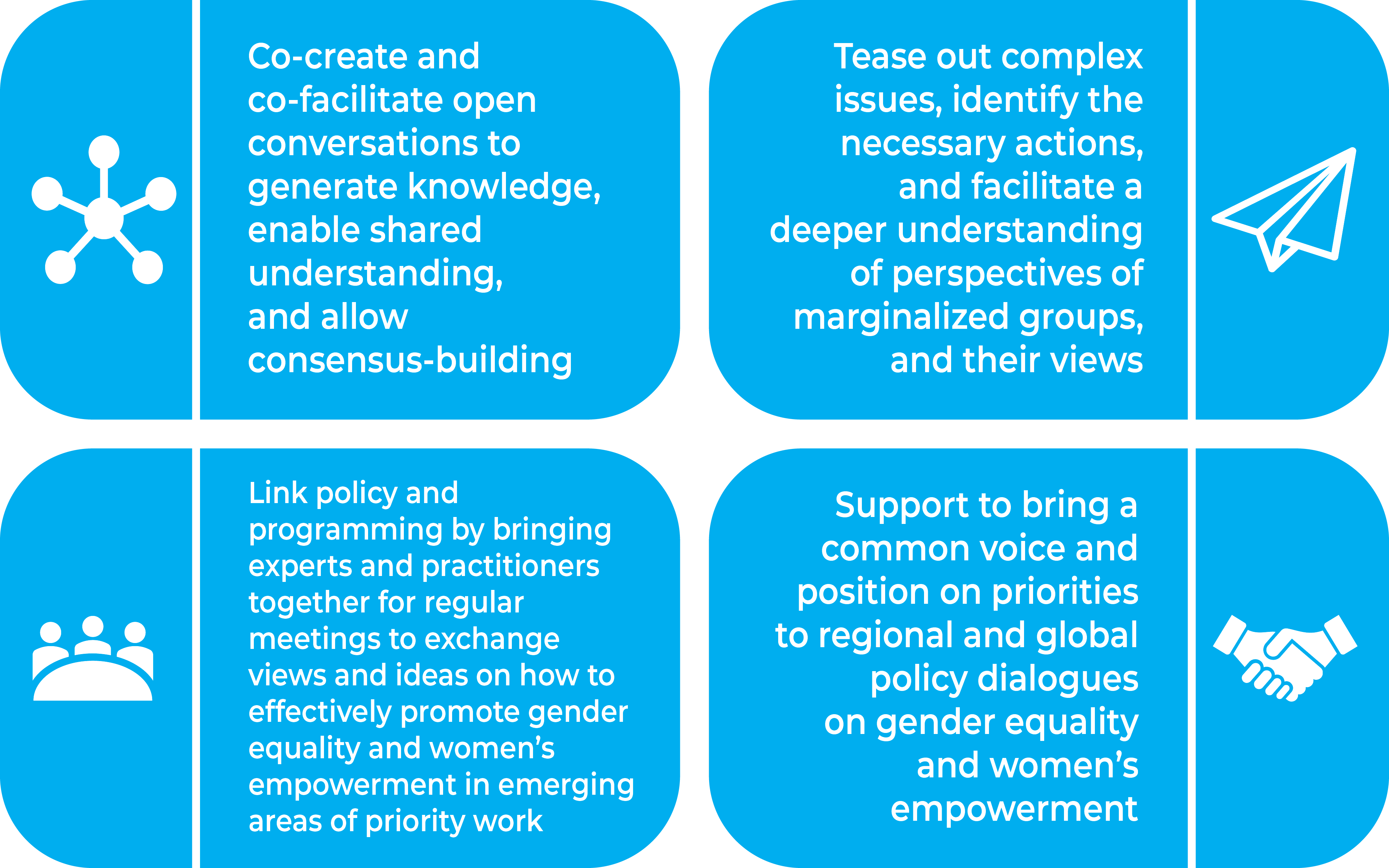АзияФем (AziaFem)
АзияФем (AziaFem) is an initiative by the UN Women Europe and Central Asia Regional Office to support the sharing of expertise, innovation and good practice to promote gender equality and women’s empowerment in Central Asia.
АзияФем (AziaFem) is a series of conversations based on a participatory approaches to policymaking, bringing together duty bearers and rights holders including decision makers, government representatives, civil society organizations , local authorities, gender equality and human rights advocates, media and the private sector.
АзияФем (AziaFem) is a space for a wide range of partners to:
- Better connect the countries of Central Asia with dialogues and forums at the regional and global levels;
- Strengthen cooperation and communication between governments, civil society, international development partners and other stakeholders to contribute to the advancement of women’s rights;
- Equip partners with the knowledge and expertise to deliver on international commitments related to gender equality and women’s empowerment;
- Discuss innovative solutions to pressing problems faced by women and girls in Central Asia;
- Challenge harmful stereotypes and change negative attitudes and behaviors in society that curtail women’s rights; and
- Lay the foundations for a gender equality mobilization and movement building across the region.
UN Women supports the АзияФем (AziaFem) is a space for the exchange of expertise, ideas, innovation and good practice as well as the promotion of solidarity and awareness regarding gender equality issues.

Priorities
- Sub-regional preparatory consultations, development of joint position papers and organization of joint (side) events related to key intergovernmental dialogues, including the annual sessions of the UN Commission on the Status of Women , the Regional Forum on Sustainable Development and the High Level Political Forum, among others;
- Beijing+30 sub-regional reviews and working together to ensure the full implementation of the UN Security Council Resolutions on Women, Peace and Security ;
- Sub-regional and multi-country thematic analyses supporting evidence-based policy dialogues, advocacy and communication on gender equality and women’s empowerment priorities for Central Asia;
- Bringing good practices and models for effective partnerships and joint work;
- Facilitation of networking and alliances amongst Central Asian partners for thematic areas of common interest to advance women’s rights in Central Asia and the achievement of related SDG targets.
How
- South-South and Triangular Cooperation and knowledge exchange ;
- Synthesizing existing knowledge, evidence, and information as well as documenting and sharing the sub-region’s unique experiences, practices and lessons learned from implementation of gender equality and women’s empowerment commitments at the regional and global levels;
- Supporting policy dialogue with necessary evidence/analysis to foster innovative approaches
- Facilitating an inclusive dialogue on gender equality and women’s empowerment priorities among policymakers, practitioners, experts, and advocates in the Central Asia region.
All virtual events are conducted live using corporate online cloud-based meeting tools (e.g. Zoom Meeting, Zoom Webinar, Microsoft Teams, and Microsoft Live Stream, etc.). Each participating country has the opportunity to lead events as a co-host partner, based on their policy priorities.
UN Women supports АзияФем (AziaFem) by providing technical assistance and advisory support, co-facilitating knowledge generation and dissemination regarding issues relevant to Central Asian countries for further evidence-based policymaking. UN Women will also support strengthening partnership and joint work with key intergovernmental and regional organizations.
After each dialogue, a summary will be prepared and shared with the recommended follow-up actions.
Principles and approaches
- Talking as equals - every voice and opinion matter
- Considering multi-dimensional factors (to have transformative and broader impact) and intersectional aspects (targeting groups at risk of being left behind)
- Ensuring equal participation – aiming for participation of youth, men and marginalized groups of at least 30%
- Using data and evidence
- Breaking boundaries for strategic partnership
- Being inquisitive and leaning into discomfort with the aim of arriving at shared understandings of the challenges and how best to respond to them.
For more information please visit our webpage in Russian.